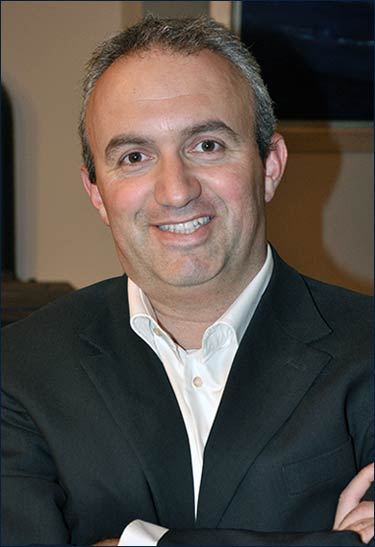By Rivka Borochov
How to feed a world pushing eight billion people is the pressing question for anyone involved in the agriculture industry. From the urban individual farmer to large industrial farms, new technologies are sought to address supply, productivity and environmental concerns.
For many reasons, including its own survival, Israel is a leader in agricultural technology. And investors now know it, says Gideon Soesman, founder of GreenSoil Investments based in Ra’anana, Israel, and Yorkville, Toronto in Canada.
Even in traditional high-tech sectors, the latest buzzword is ag-tech, and eyes are looking toward a country that has, over the last 60 years, learned how to feed itself using drip irrigation, seed hybridization and smart cultivation techniques.
Soesman, a prophet of sorts, saw this potential three years ago when he co-founded GreenSoil Investments. The venture capitalist, who’d brokered multi-million deals like the $700 million acquisition of Avent by Philips, decided to build a portfolio of companies that provide novel technologies to the agriculture industry.

GreenSoil founder Gideon Soesman Initially, he relates, his colleagues thought he was nuts. But looking at the macro scale, he understood that technology was needed to bridge the gap between shrinking available land and food supply. Global warming and climate change adds another layer of insecurity.
A climate of skill sets
Israel has a few advantages to mitigate risks. One is talent and entrepreneurs’ general proximity to one another.
In the United States’ Midwest region, for instance, it’s relatively hard to form startup companies with diverse talents because they are dispersed over wider distances. In Israel, agronomists are doing research close to the cities. In contrast, Tel Aviv’s high-tech center is a three-hour drive from almost anywhere in the country.
In addition, explains Soesman, Israel is good at taking skills learned in the army’s intelligence units and applying them to startups in imaging, communications, healthcare and enterprise software. At this interface, ag-tech gets interesting.
Over the last three years, GreenSoil has evaluated about 300 startup companies. Following due diligence, the fund has already invested in five companies and will make a further investment in the next months from their pool of $30 million, half of which is already invested.
Two-thirds of the investors in Israeli ag-tech are coming from Canada, the home base of Soesman’s co-founder Alan Greenberg, while the other third hail from Europe, the United States and South Africa.
Major agriculture corporations, suchas Monsanto and Syngenta, are already serious about Israel’s ag-tech. But also non-traditional players in this space, such as Google’s Innovation Endeavors, have earmarked ag-tech as their interest for the future.
Google launched its Farm2015 initiative in November to start deploying new ag-tech solutions to the market, while other developments in the United States are being fueled by the Agfunding platform and Khosla Ventures.
On track to feed the planet
Jack Levy, a partner at Israel Cleantech Ventures (IVC) was one of the first to take a solid investment interest in ag-tech in Israel.
“Throughout its history, driven by our kibbutz agricultural communities and our world-leading research faculties, Israel has led innovation in resource-constrained agriculture and excelled in making our desert bloom,” Levy says.
“Companies such as Netafim, in drip irrigation, and Evogene, in plant genetics, have established themselves global leaders in their fields.
“Going forward, we see innovation coming out of two new directions: Academic researchers are hard at work to find more environmentally sustainable biological-based solutions to enhance yield and protect crops.
“And as growers begin to adopt software and communication tools and precision sensors to make even more efficient use of resources, a new generation of Israeli entrepreneurs are bringing their communications and information technology expertise into the agricultural arena,” concludes Levy.
Newcomers to this space of precision agriculture – which involves analyzing the farms using existing data and sensors -- include Israel’s Agritask, which is developing its Scantask product to make farms more productive.
Other companies to watch are Agam and Sensilize, both venturing into this new and exciting area of making the most out of precious resources.
No doubt investors and customers looking for Israel’s ag-tech smarts will be delighted to see them in action at the World Expo 2015 (Expo Milano)in Milan, Italy.
Feeding the world will be the topic, and Israeli companies along with Italian partners are already planning model and demo farms for visitors to see when the journey to Milan.
s